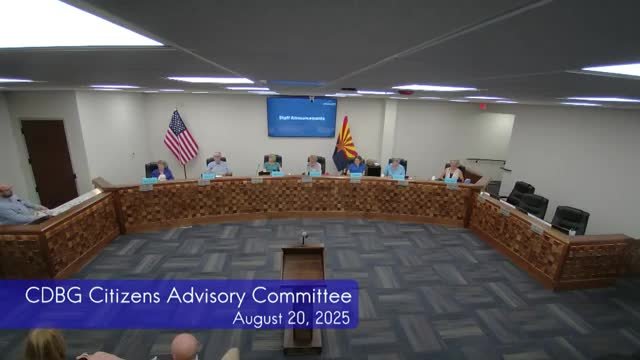Phoenix – Water Concerns at the Forefront of Arizona Politics
For the past 20 years, Arizona has faced ongoing challenges, including drought, climate change, and rising water demands. It’s led to increasingly urgent discussions among state leaders.
Representative Gale Griffin has been a significant figure in these discussions. As the head of key committees focusing on water and land use, her position has allowed her to influence which legislation moves forward, often prioritizing property rights.
However, Griffin’s strong stance has drawn criticism from both residents and fellow lawmakers, including Governor Katie Hobbs. Many see her as an obstacle to necessary reforms concerning groundwater management, especially as the state’s water crisis deepens.
Recently, Hobbs managed to utilize her authority to implement localized restrictions, particularly in areas like the Wilcox Basin, without full legislative backing.
Griffin represents a variety of areas, including much of Cochise County, as well as parts of surrounding counties like Pima and Santa Cruz.
The Ongoing Drought Regulations Debate
At the start of the legislative session, Hobbs introduced a proposal aimed at regulating groundwater pumping in rural areas. Unfortunately, she has struggled to garner bipartisan support from Griffin.
On the other hand, Griffin successfully pushed through legislation that enables farmers to transfer their water pumping rights to developers, marking a significant achievement in this year’s water law landscape.
Still, many residents, like homeowner Karen Wyracher, express frustration at the persistent lack of updates to Arizona’s groundwater code, which they believe is essential for addressing the worsening situation.
The existing code allows for managing pumping in urban areas, but a consensus on regulating rural areas remains elusive, leading to conflict over water control for future legislation.
Earlier this year, Wyracher spoke passionately at a committee meeting led by Griffin, highlighting the importance of water for rural communities.
While Griffin refrains from discussing her influence on water policy directly, she asserts that Hobbs’ proposals could adversely affect agriculture and rural economies.
Griffin stated her commitment to safeguarding private property rights and supporting local communities, emphasizing the need for legislative solutions that promote growth in rural Arizona.
Maintaining Rural Values
Griffin’s dedication to preserving a rural lifestyle has been unwavering since her legislative term began in 1997. Former GOP house speaker Rusty Bowers notes that she holds firm to her principles and expects respect for her views on governance.
In her community, Griffin is recognized not only as a policymaker but also as an active participant in rural life. Describing her ranch neighbors as “true environmentalists,” she highlights their commitment to land stewardship.
Her pragmatic approach resonates with local constituents, who appreciate her straightforwardness. In a previous discussion, Griffin brought up a personal story regarding wildlife encounters, questioning the adequacy of authorities when facing concerns.
Such anecdotes often endear her to constituents, reflecting her resolve to empower individuals in taking care of their property. This motivation was a driving factor behind her initial candidacy.
Despite some mixed feelings, residents continually support Griffin, sending her back to office repeatedly, appreciating her unflinching dedication to their needs.
Cochise County farmer Ed Curry, who works with the governor’s Water Policy Council, emphasizes the need for regulations to ensure future water availability. While acknowledging Griffin’s efforts, he and others express a concern for the community and advocate for change.
“Action is necessary,” Curry concludes, underscoring the urgency of the situation.







